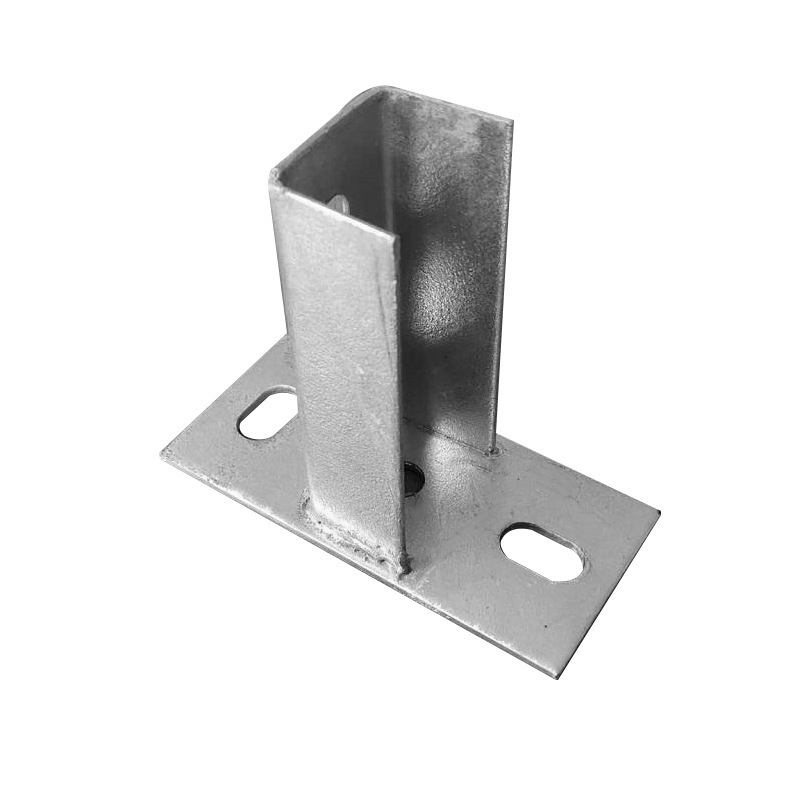

Understanding Flange Lock Nuts and Their Applications in Mechanical Engineering
Nov . 06, 2024 12:24 Back to list
Understanding Flange Lock Nuts and Their Applications in Mechanical Engineering
The Importance of Flange Lock Nuts in Mechanical Assemblies
In modern mechanical engineering and manufacturing, the integrity of connections is vital for the durability and safety of machines and structures. One essential component that greatly contributes to secure fastening is the flange lock nut, a specialized fastener that offers numerous advantages over traditional nuts in various applications. This article delves into the design, functions, benefits, and applications of flange lock nuts, shedding light on why they are essential in many industries.
Understanding Flange Lock Nuts
Flange lock nuts are a unique type of fastener that combines a standard nut with a flange—essentially a protruded edge or collar that enhances stability and load distribution. This design feature is particularly beneficial as it prevents loosening under vibrations and dynamic loading conditions, which are common in many mechanical systems. The flange also serves as a washer, providing a larger surface area that helps to evenly distribute the clamping force across the joint.
Design Features
Typically made from materials like steel or stainless steel, flange lock nuts can withstand diverse environmental conditions, including high temperatures and corrosive atmospheres. Various designs exist, including those with additional locking features—such as nylon inserts or serrations—that work to enhance the resistance against loosening. The unique geometry allows for easy installation and ensures that the nut aligns perfectly with the bolt, minimizing misalignment issues.
Benefits of Using Flange Lock Nuts
1. Vibration Resistance One of the primary advantages of flange lock nuts is their ability to remain secure under vibrational stress. This characteristic makes them ideal for applications where machinery operates at high speeds or generates repetitive movements.
2. Improved Load Distribution The flange design distributes the load more evenly than standard nuts, reducing stress concentrations that could lead to failure. This property is especially crucial in applications involving heavy machinery or structural components.
3. Ease of Installation Flange lock nuts are typically easier to install because they do not require an additional washer. The built-in flange simplifies the fastening process, saving both time and labor costs during assembly.
flange lock nut

4. Reduced Risk of Loosening The locking mechanisms in some flange lock nuts ensure they maintain their position even when subjected to significant forces. This reliability is critical in safety-sensitive applications, such as in automotive and aerospace engineering.
5. Corrosion Resistance Many flange lock nuts can be coated or made from materials that resist corrosion, extending the service life of the assembled product. This feature is particularly advantageous in outdoor or marine applications.
Applications in Various Industries
Flange lock nuts are incredibly versatile and find applications across a broad spectrum of industries, including
- Automotive Used extensively in vehicle assembly, flange lock nuts secure exhaust systems, suspension components, and engine parts. Their resistance to vibration keeps these critical components intact.
- Aerospace Components of aircraft require maximum reliability. Flange lock nuts are commonly utilized in fuselage assemblies, landing gear, and engine mounts due to their high-strength properties and resistance to loosening.
- Construction In structural steel connections and heavy equipment assembly, flange lock nuts contribute to the overall stability and safety of constructions, ensuring that they can withstand environmental stresses.
- Manufacturing Equipment In machinery that undergoes constant operation, these nuts are essential for maintaining tight connections in moving parts and preventing failures that could lead to costly downtimes.
Conclusion
In conclusion, flange lock nuts are integral to modern engineering, providing a robust solution to the challenges of securing fasteners in dynamic environments. With their unique design, they offer improved load distribution, resistance to vibration, and ease of installation—making them a preferred choice for engineers and manufacturers alike. As industries continue to evolve and demand more reliable mechanical assemblies, the role of flange lock nuts will only grow, highlighting the importance of these seemingly simple yet highly effective components in ensuring safety and performance in a wide array of applications.
Latest news
-
High-Strength Hot Dip Galvanized Bolts - Hebei Longze | Corrosion Resistance, Customization
NewsJul.30,2025
-
Hot Dip Galvanized Bolts-Hebei Longze|Corrosion Resistance&High Strength
NewsJul.30,2025
-
High-Strength Hot-Dip Galvanized Bolts-Hebei Longze|Corrosion Resistance&High Strength
NewsJul.30,2025
-
Hot Dip Galvanized Bolts-Hebei Longze|Corrosion Resistance&High Strength
NewsJul.30,2025
-
Hot Dip Galvanized Bolts - Hebei Longze | Corrosion Resistance, High Strength
NewsJul.30,2025
-
High-Strength Hot Dip Galvanized Bolts-Hebei Longze|Corrosion Resistance, Grade 8.8
NewsJul.30,2025

